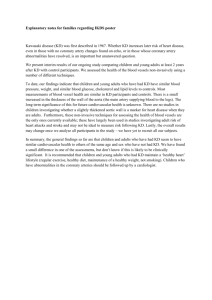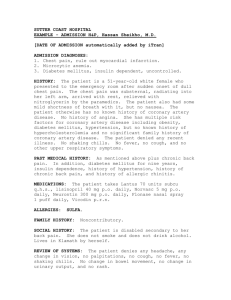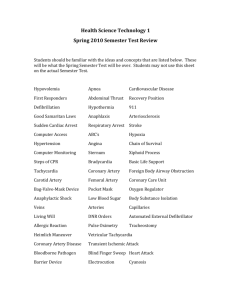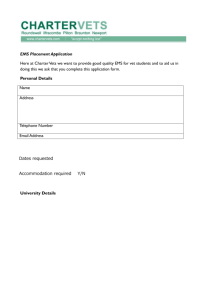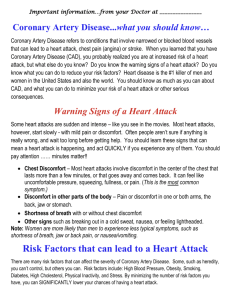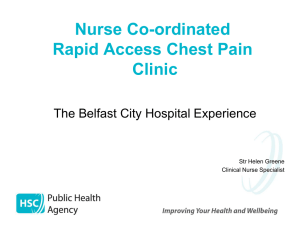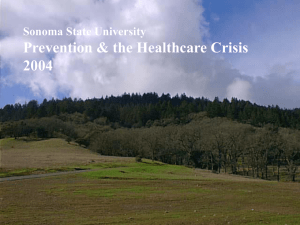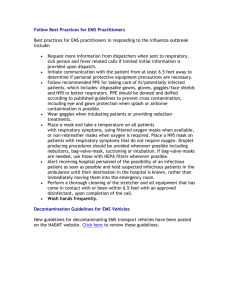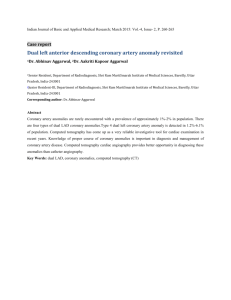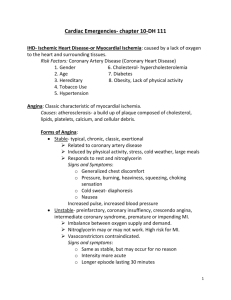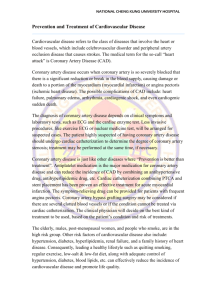PPT
advertisement
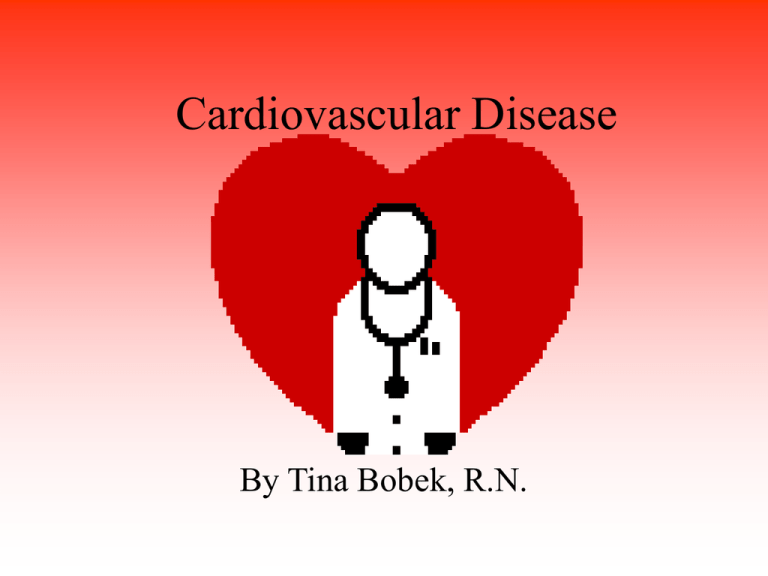
Cardiovascular Disease By Tina Bobek, R.N. Risk Factors for Heart Attack • Some things you can’t change: – Heredity – Gender – Age • But you can choose to change these: Controlling these contributing – Smoking factors will help – High B/P decrease your – High blood cholesterol risk: – Inactivity Diabetes Obesity Coronary Artery Disease Comes From Blocked Blood Vessels In The Heart Blood flow Artery wall Fatty deposits Blood clot Warning Signs Listen to your heart! Act immediately! “I thought it was indigestion!” Signs of a Heart Attack Other Heart Attack Early Warnings • • • • • • • • Difficulty in breathing Palpitations Nausea Vomiting Cold Sweat Paleness Weakness Anxiety Emergency Action Plan for Person with Signal of Heart Attack Person with Person with coronary coronary heart disease heart disease (on nitroglycerin) • Recognize the signals of a heart attack Recognize the signals of a heart attack • Stop activity and sit or lie down Stop activity and sit or lie down • Wait about 5 minutes to see if the symptoms go away. If the pain persists: Take 1 nitroglycerin tablet at a time at 3-5 minute intervals to maximum total dose of 3 tablets. If pain persists: Activate the “chain of survival” (911, EMS system, or local rescue unit) OR If no EMS system is available, take victim at once to the nearest hospital ER that offers 24 hour emergency care Entry into the EMS (Emergency Medical System) Call Tell the operator: 1. 2. 3. 4. 5. 6. Location of the emergency Your present telephone number What happened How many persons need help Condition of the victim(s) What is being done Early treatment increases your chances of survival or full recovery!!! TAKE CONTROL! Prudent Heart Living • A lifestyle that minimizes the risk of future heart disease • Stop Smoking! • Control high blood pressure!!! • Control diabetes • Eliminate obesity • Exercise!! Foods to Limit Foods to Include Daily!
